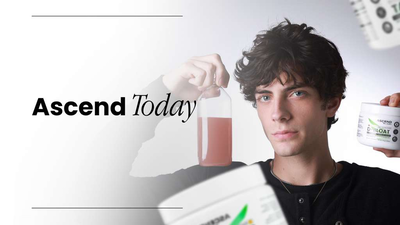Enigma ∞
CURSED KID
- Joined
- Nov 24, 2024
- Posts
- 120
- Reputation
- 81
Increasing dihydrotestosterone (DHT) levels in the body can have various effects depending on individual genetics, hormone balance, and the extent of the increase. DHT is a potent androgen derived from testosterone, and it plays an essential role in male development and physiology. However, elevated levels of DHT can have both positive and negative consequences:
Positive Effects:
1. Improved Muscle Growth and Strength: DHT contributes to anabolic effects and may enhance strength and lean muscle mass.
2. Increased Libido: DHT is a key factor in sexual drive and performance.
3. Secondary Sexual Characteristics: During puberty, DHT influences the development of male features like a deep voice and facial hair.
Negative Effects:
1. Hair Loss (Androgenic Alopecia): DHT can shrink hair follicles, leading to male-pattern baldness, particularly in individuals genetically predisposed to it.
2. Prostate Enlargement: Excessive DHT is linked to benign prostatic hyperplasia (BPH) and could increase the risk of prostate issues.
3. Acne: Elevated DHT levels can overstimulate sebaceous glands, leading to acne outbreaks.
4. Mood Swings or Aggression: Increased androgen levels may affect mood or behavior.
5. Reduced Fertility: Excessive DHT can suppress luteinizing hormone (LH) and follicle-stimulating hormone (FSH), potentially affecting sperm production.
How to Increase DHT (If Needed)
Certain lifestyle factors and supplements can increase DHT, such as:
Resistance training and high-intensity exercise.
Consuming a diet rich in healthy fats.
Taking supplements like creatine or DHEA
Positive Effects:
1. Improved Muscle Growth and Strength: DHT contributes to anabolic effects and may enhance strength and lean muscle mass.
2. Increased Libido: DHT is a key factor in sexual drive and performance.
3. Secondary Sexual Characteristics: During puberty, DHT influences the development of male features like a deep voice and facial hair.
Negative Effects:
1. Hair Loss (Androgenic Alopecia): DHT can shrink hair follicles, leading to male-pattern baldness, particularly in individuals genetically predisposed to it.
2. Prostate Enlargement: Excessive DHT is linked to benign prostatic hyperplasia (BPH) and could increase the risk of prostate issues.
3. Acne: Elevated DHT levels can overstimulate sebaceous glands, leading to acne outbreaks.
4. Mood Swings or Aggression: Increased androgen levels may affect mood or behavior.
5. Reduced Fertility: Excessive DHT can suppress luteinizing hormone (LH) and follicle-stimulating hormone (FSH), potentially affecting sperm production.
How to Increase DHT (If Needed)
Certain lifestyle factors and supplements can increase DHT, such as:
Resistance training and high-intensity exercise.
Consuming a diet rich in healthy fats.
Taking supplements like creatine or DHEA



